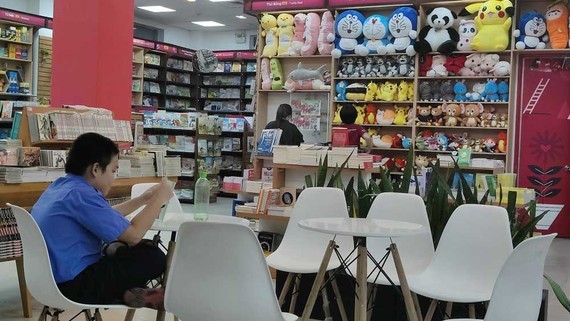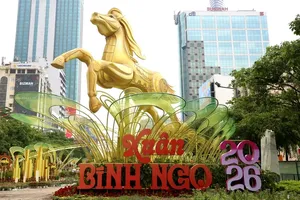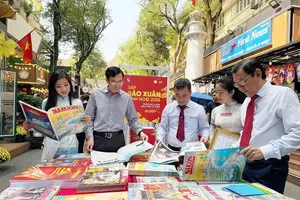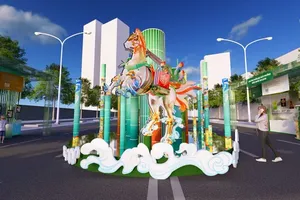 A child is reading a book at a traditional bookstore
A child is reading a book at a traditional bookstore
Currently, Fahasa's distribution channel has 120 bookstores in 47 provinces and cities nationwide. In 2022, despite difficulties, it continuously opened bookstores in the Mekong Delta provinces of Tra Vinh, Bac Lieu, and Hanoi. In the first nine months of this year, Fahasa's revenue reached nearly VND3,100 billion (US$125,005,192).
Also being one of the largest distribution systems today with 50 bookstores nationwide, Phuong Nam Cultural Company has just opened 2 more bookstores in Hanoi earlier this year, and the company has recently inaugurated a bookstore in Cao Lanh Book Street in the Mekong Delta Province of Dong Thap. According to Ms. Tran Nhat Hoang Phuong, Marketing and Communication Director of Phuong Nam Cultural Company, traditional bookstores are still irreplaceable at present.
Ms. Phuong said that customers will buy what they need on e-commerce channels, but readers will have a new experience with traditional bookstores. A reader comes to the bookstore not only to buy books but also to experience the bookstore space, which will be very different from other retail stores. Especially, young customers and their family members prefer visiting traditional bookstores. On weekends, young people and their children opted for traditional bookstores where they can both drink coffee and read books for entertainment, Ms. Hoang Phuong said.
With the same opinion, Chairman of the Board of Directors of Fahasa Pham Minh Thuan noted more about the current trend of people's consumption that people tend to spend more weekend time at shopping centers. Therefore, bookstore managers will make the most of this trend. All of the newly-opened Fahasa bookstores are in shopping malls and do good business on weekends. Therefore, Fahasa's bookstore leaders still open more traditional bookstores for foreseeable business opportunities, said Mr. Thuan.
One more reason to keep the traditional bookstore alive is the needs of customers. Ms. Phuong Thanh in District 1’s Tan Dinh Ward in Ho Chi Minh City said that she often buys goods through e-commerce platforms, but she has to personally go to a bookstore to buy books for her children because with children's books, age, gender, and interests are very important not to mention the content’s effect on her children. Hence, she must go to a bookstore in person to read the book before buying it for her children.
Fahasa has just opened the Fahasa Phu Lam bookstore and this is the 10th smart bookstore in the system of 120 Fahasa bookstores nationwide. With the smart bookstore model, the application of technology helps all goods at the bookstore to be located in sections with different codes for each shelf. Especially, customers can search for information about the selling price, author, and origin at the bookstore’s look-up counter. In addition, staff at the look-up counter also guide visitors the way to the display location with Printable minimaps.
It can be seen that digital transformation is a vital problem for traditional bookstores nowadays. Ms. Hoang Phuong said that the information technology platform helps to manage key activities such as finance and accounting, purchasing management, inventory, logistics, and sales management faster; thereby, helping to better meet the needs of customers.
Currently, Phuong Nam is also applying technology to its retail system to better serve customers such as cashless payment utilities and issuing membership cards.
Mr. Thuan also said that digital transformation is a must for distributors because the current consumption trend is changing very quickly. For instance, in the past, it took 5-7 years the consumption trend would change, but young people today change their consumption trend in about 2-3 years. Businesses must understand consumption trends to develop suitable products, said Mr. Thuan.
























